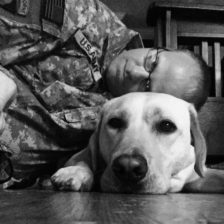You may have noticed several people talking about mental health lately. Most recently, Prince Harry admitted that he sought counseling after the death of his mother. His brother, Prince William and his sister-in-law, Kate have also reacted to the news by advocating for the stigma of mental health issues to be broken. Other well-known folks have joined in these efforts, Lady Gaga, David Tennant, Kristen Bell…and many others I’m sure…
But how do those who deal with mental health issues/problems/concerns every single day feel when a celebrity says the word “anxiety,” and the internet breaks because there are all sorts of videos, headlines, and stories that come about due to one celebrity or many…
Mental health is not “the next best thing,” nor should it be talked about like it is the “next hot thing.” This is not new. Perhaps, this is something we want to sweep under the rug or avoid talking about…because it seems hard. Maybe we avoid trying to understand mental health diagnoses because it is scary. I wonder if people avoid talking about mental health or understanding mental health because they just don’t know what to say…
Despite the attention that a celebrity could bring to a topic, issue, or debate it seems that some folks who deal with anxiety, depression, PTSD, or other mental health diagnoses are conflicted. Can a celebrity help change a perception? Regardless of who or what is talking about mental health, we have to stop the stigma.
We have to stop the stigma.
The young Royals of Britain have coordinated a campaign called Heads Together. This effort is aimed at ending the stigma for mental health in the U.K. This program (and why I find it very interesting) includes a collaboration of military support organizations (among others) which hope to change the national conversation around mental health.
At some point people may struggle with mental health. Sam was just telling me about a former Cardinals player, David Freese, who recently discussed depression. Freese, who considers his hometown to be St. Louis, Missouri, was once regarded as a baseball hero, but saw himself as “a tormented man who battled just to get out of bed.” He even notes in his interview, “There was definitely a lack of care about my well-being at certain times.”
Baseball star? No way.
He felt lonely due to the fact that his “star quality” rose rather quickly. He was provided counseling but that didn’t work, and the image of “hometown hero” quickly faded as he was traded…but not before crashing his SVU into a tree.
Freese knew he needed help…but he couldn’t manage to find it, get it, or really work at getting better. Issues deeper than alcohol, depression, and anxiety were taking over, and with the help of his now wife, Mairin and a therapist, he re-trained his brain.
Seems easy, right? But, I can’t help but read that and think of the ol cliche, “easier said than done.”
At times, dealing with stress, anxiety, depression, intrusive thoughts, and having an overall feeling of worthlessness or grief can really do a number on someone, and possibly, a family. There may be people in your family or around you who have been close to a breakdown. You may feel overwhelmed, as if everything is coming at you at once, people are out to get you, sabotage daily life. Shutting down emotions can be dangerous.
We need to speak more about mental health. We need to shed light on those who are willing to share their story.
We need to understand that anxiety doesn’t have a look, we never know what someone is going through, so why should we be so quick to judge?
We need to understand that sometimes those who suffer from anxiety, depression and stress may have no idea what is causing their pain. We must try and offer support and love them no matter what.
PTSD experiences are different and the recovery is ongoing. Healing and loving can feel dangerous to someone who suffers from PTSD, so trying to research and understand how trauma can cause the brain and body to change down to the cellular level can be important. These changes are what cause mood swings, sleep disturbances, and hypervigiliance to name a few.
Try to accept or understand that there’s no simple or guaranteed solution to PTSD recover. It is a very unique path for every individual. Sam’s recovery will not match that of another Veteran, but it could be similar. Recovery takes time. You should not hold your loved one or friend to a standard that things will change overnight.
Some who struggle with mental health may be very good at wearing a mask. This was Sam…for a very long time. He didn’t want others to see he was struggling. He didn’t want people to worry about him, and he didn’t want to make others feel uncomfortable.
So many people just don’t understand depression. There’s no black and white with depression. It is not sadness, it might be feelings of guilt, self-loathing, and emptiness.
We need to stop the stigma.
We need to understand.

